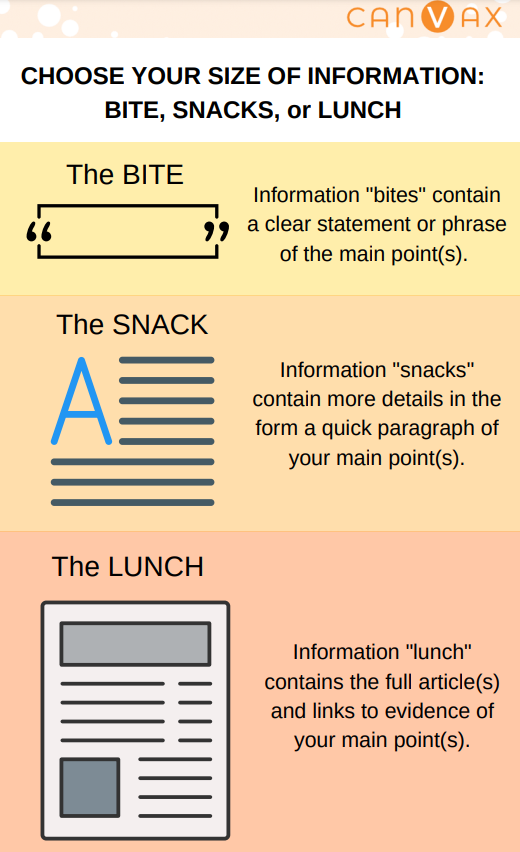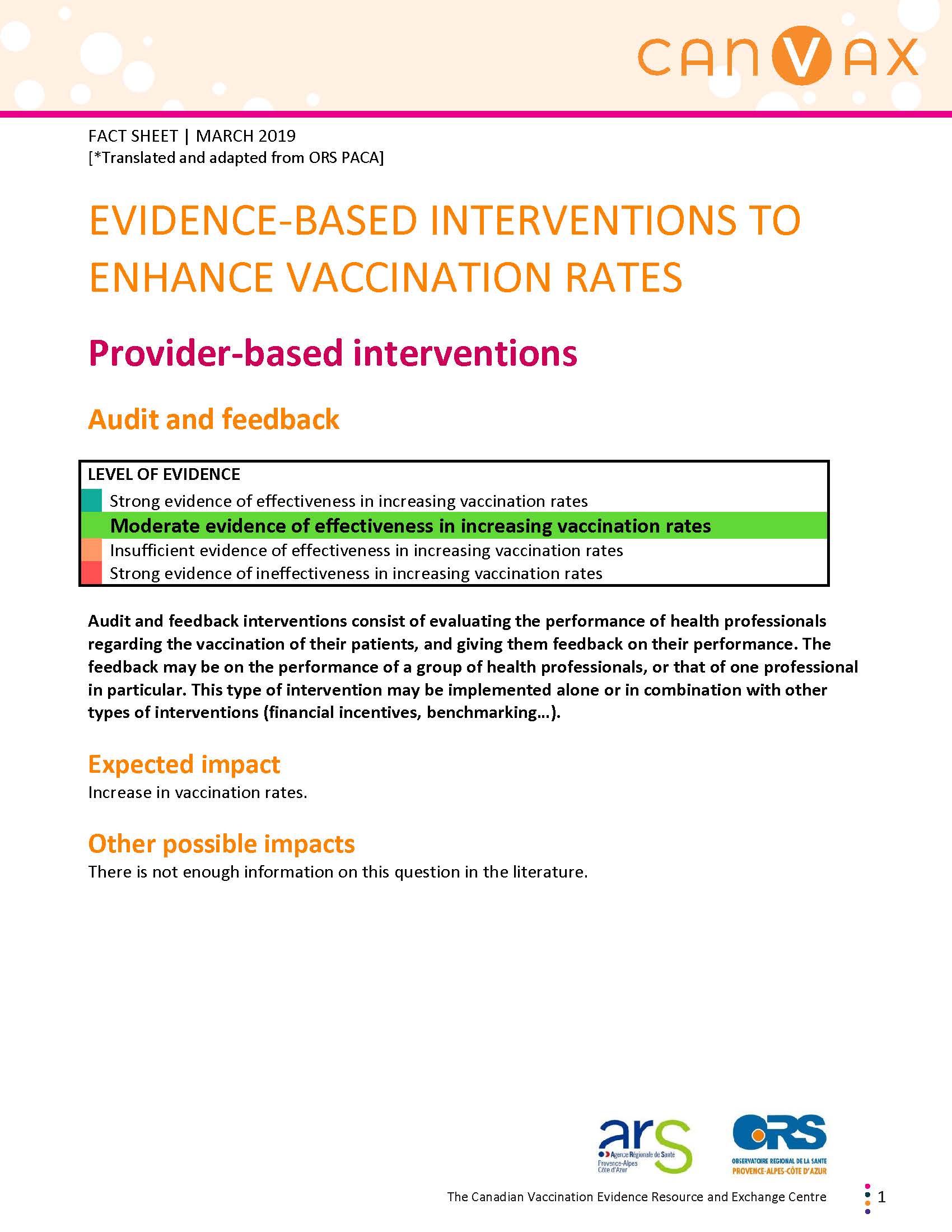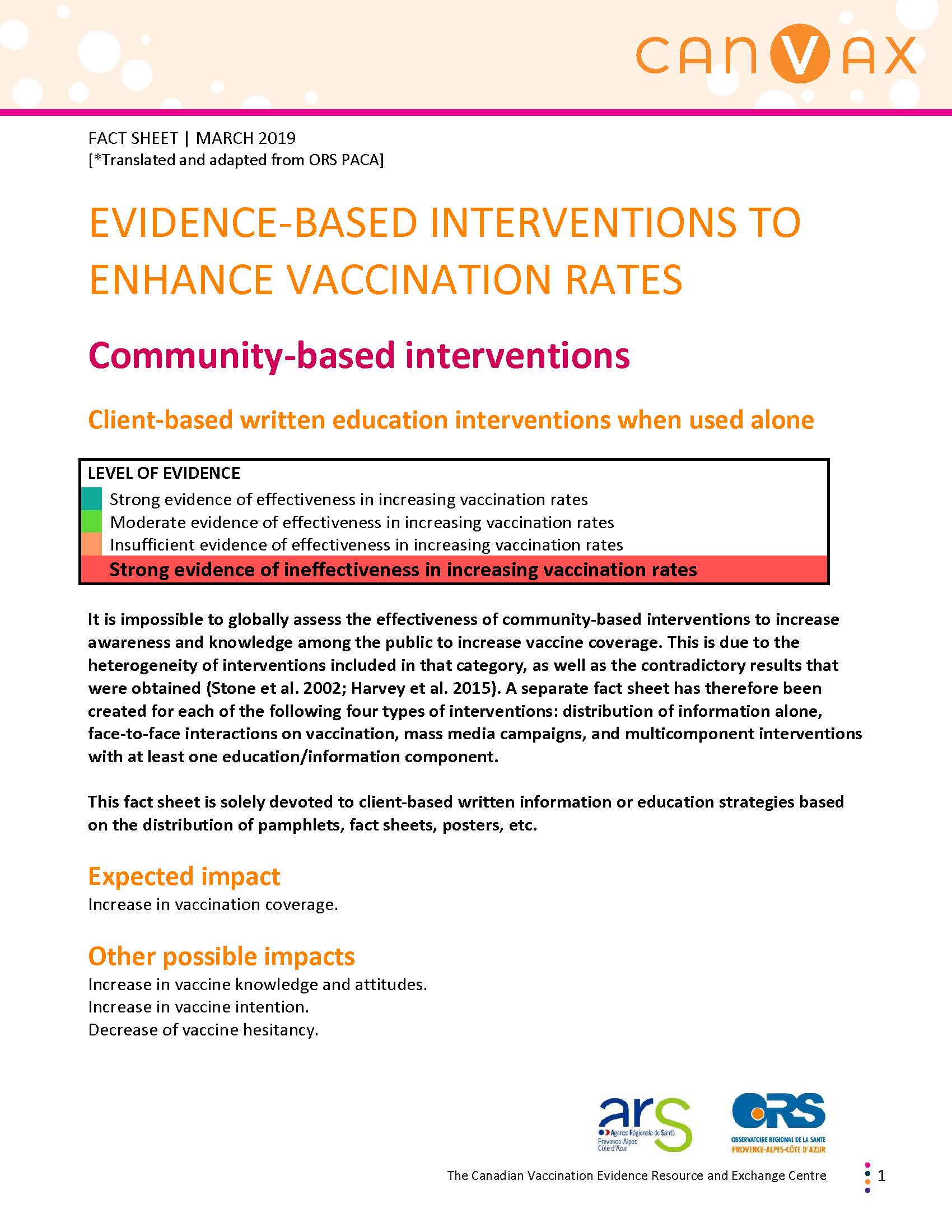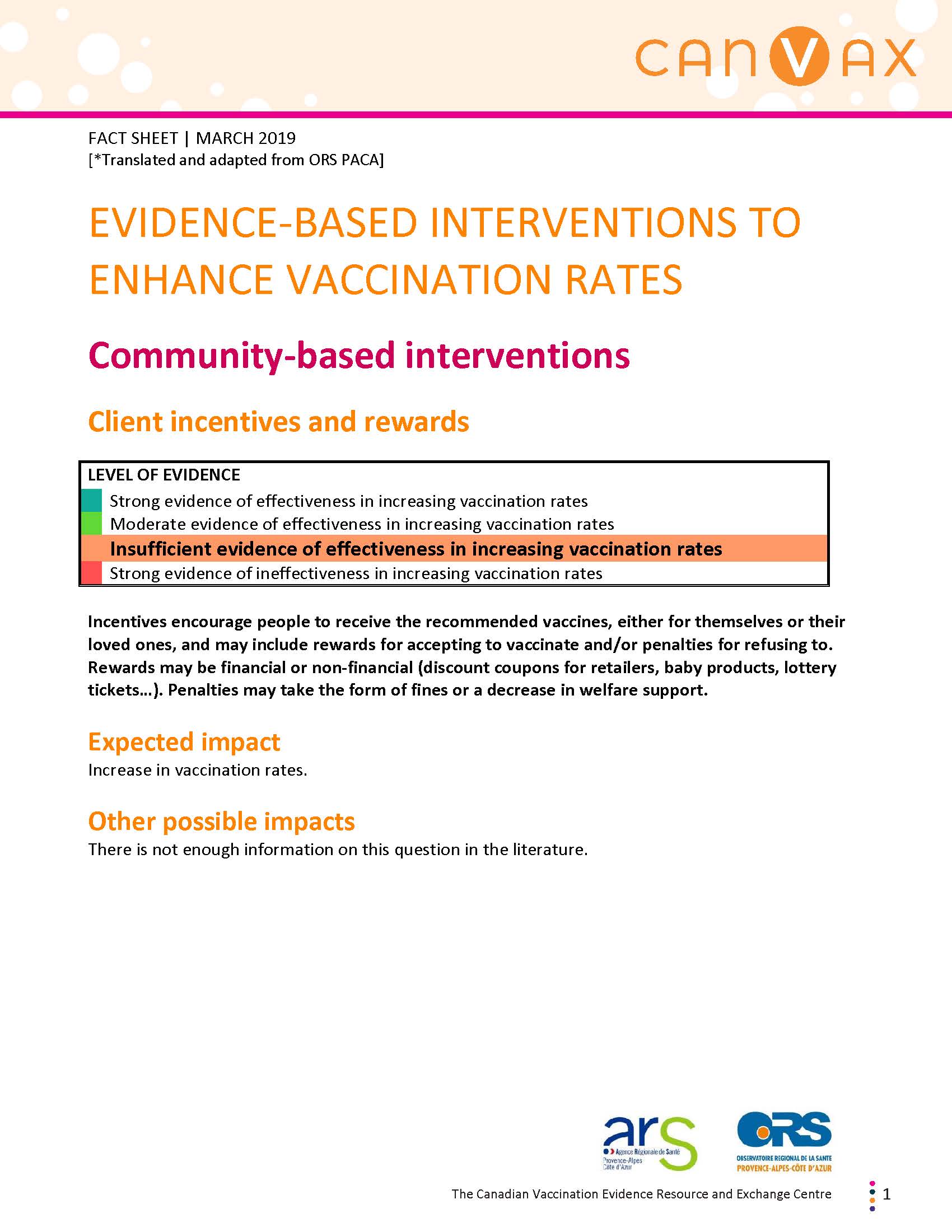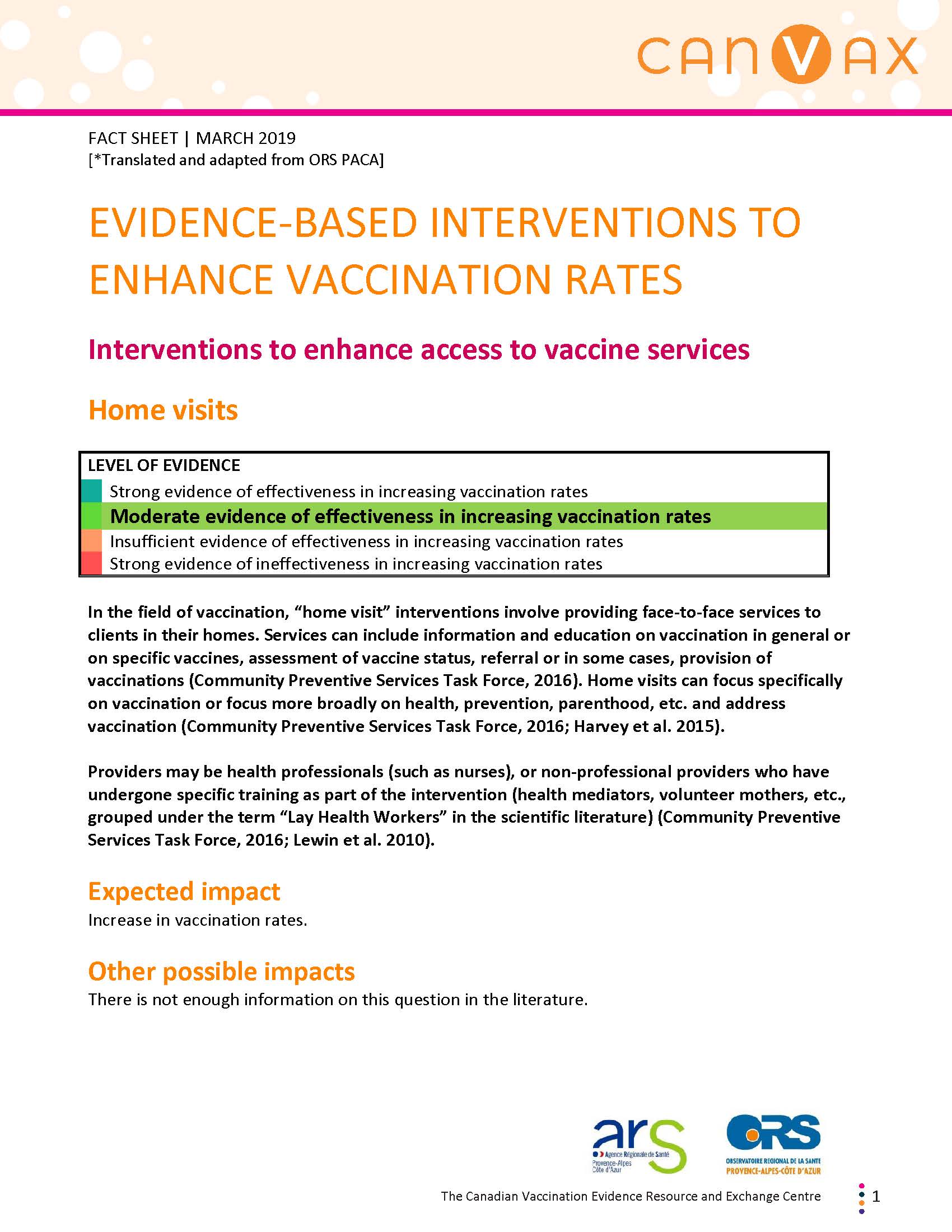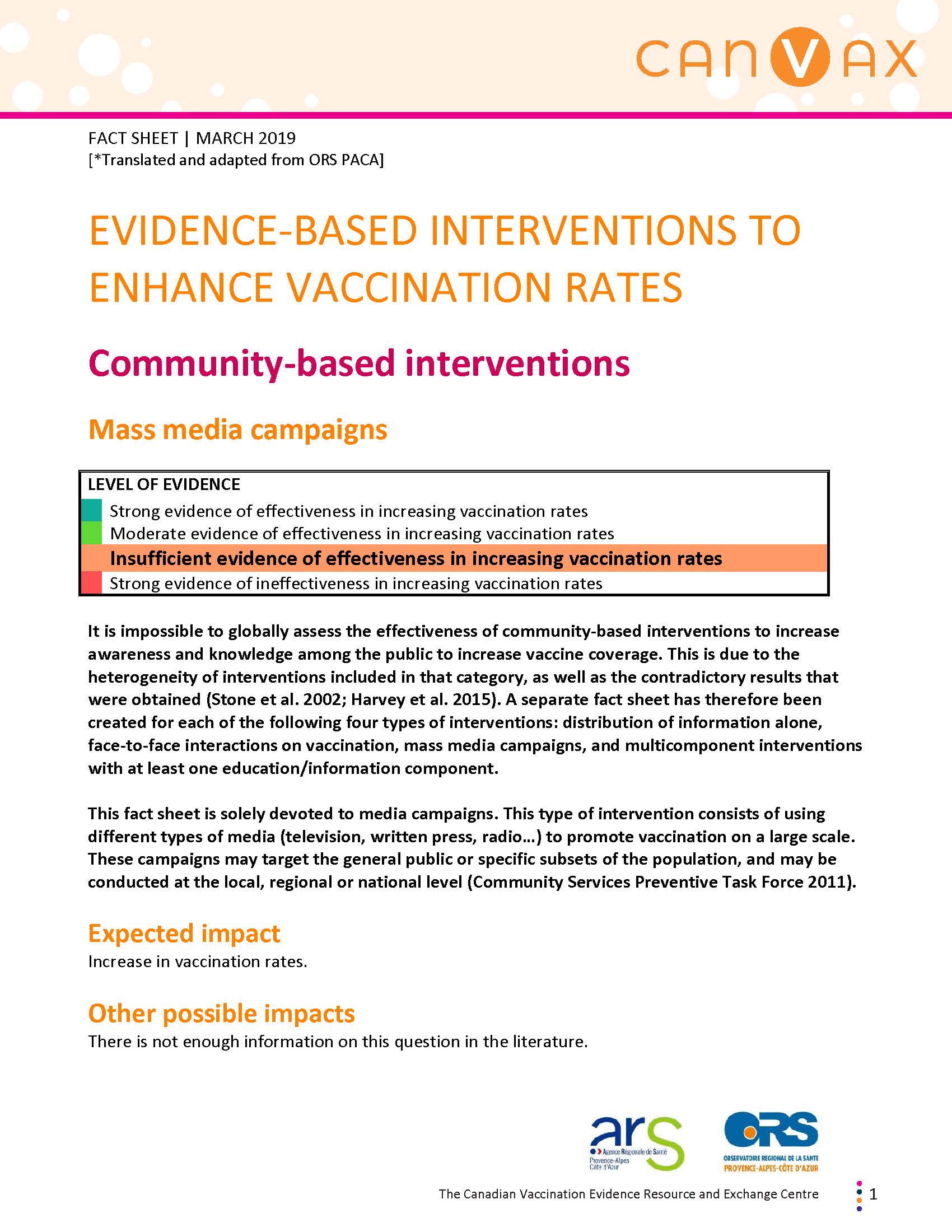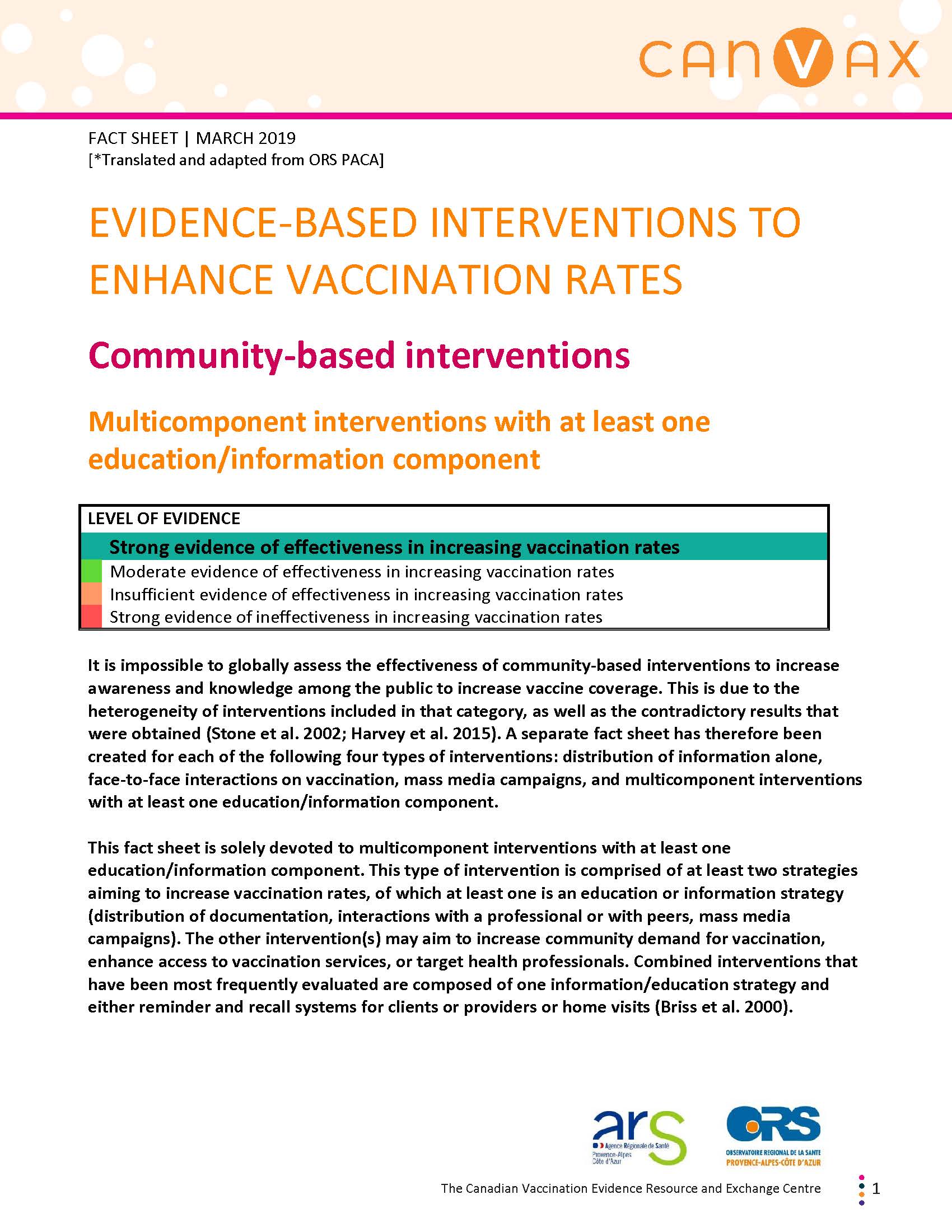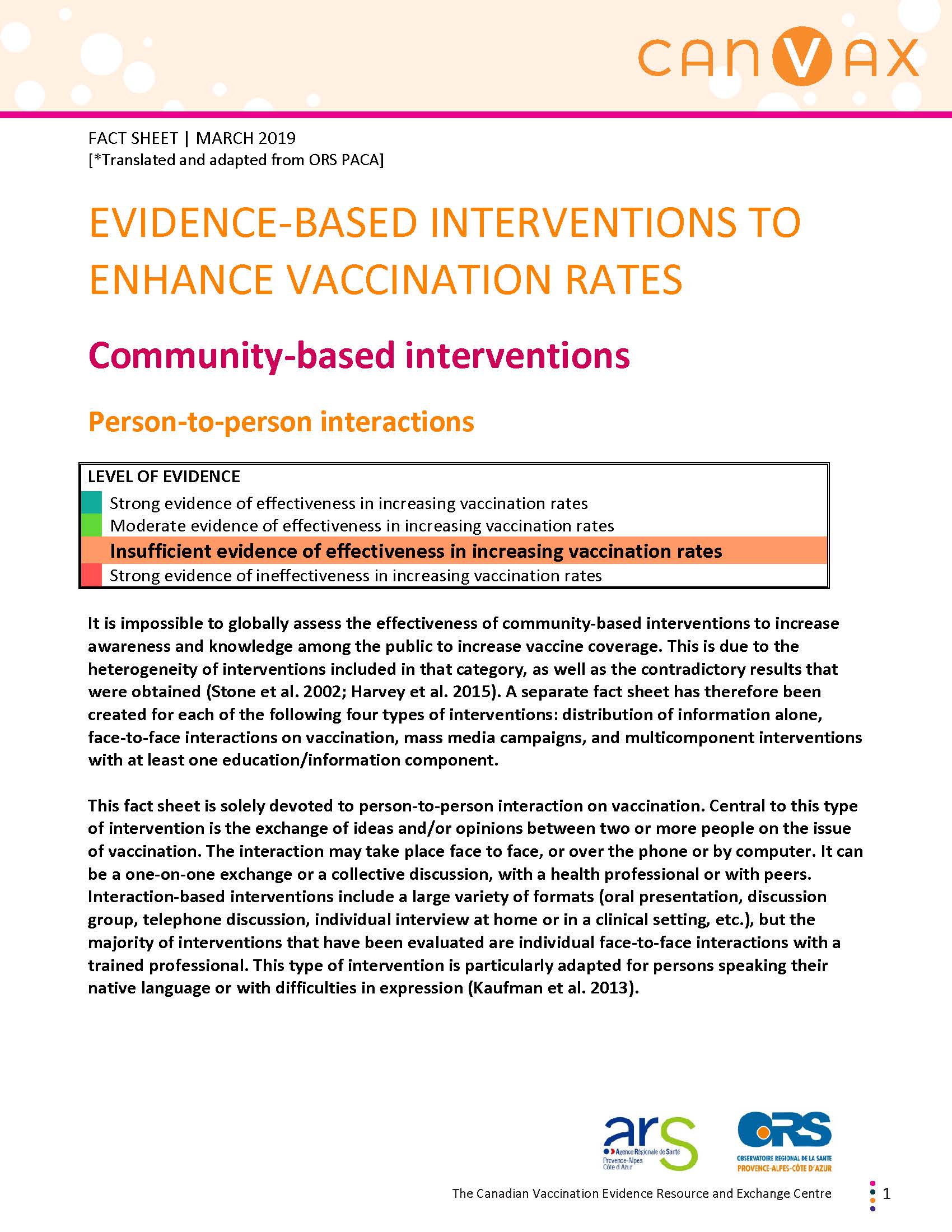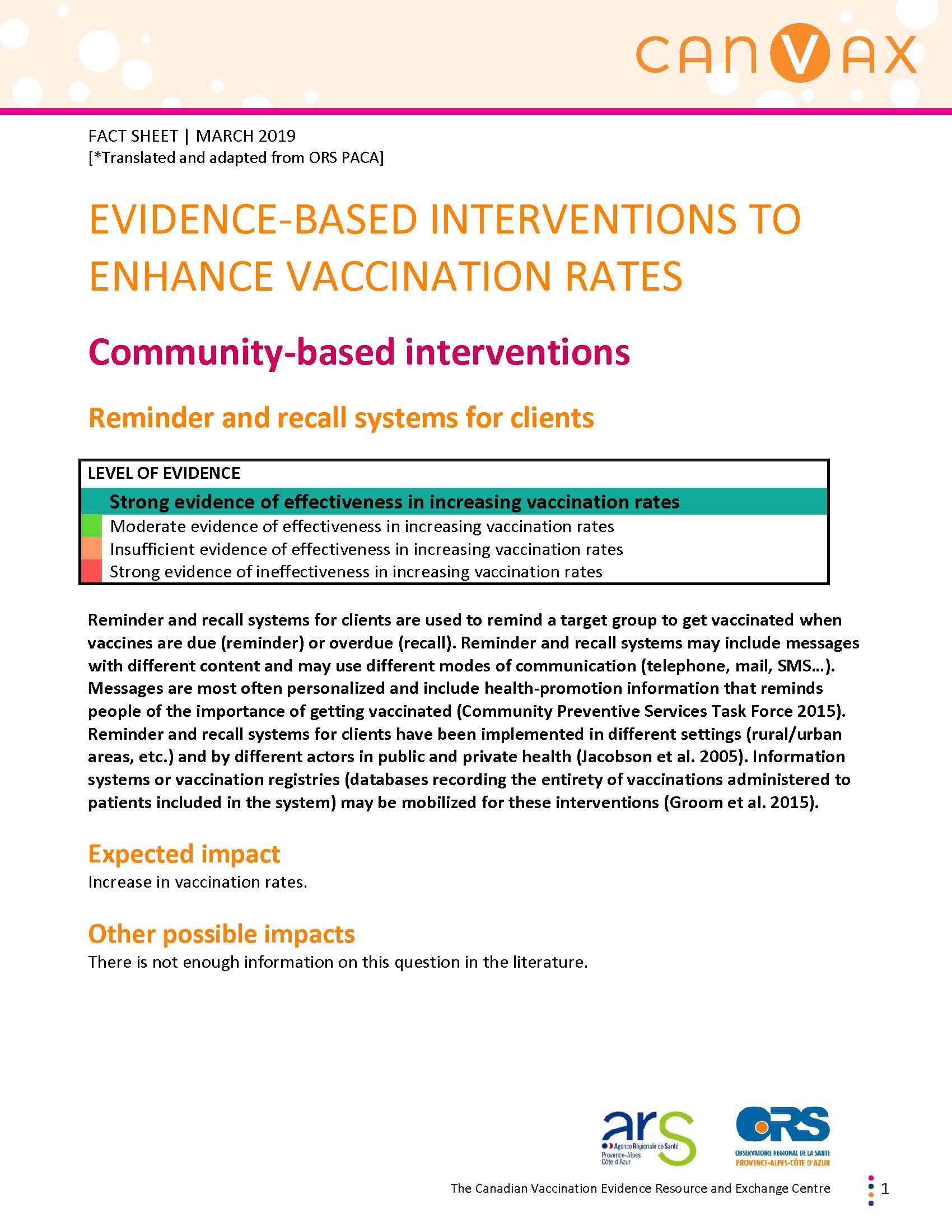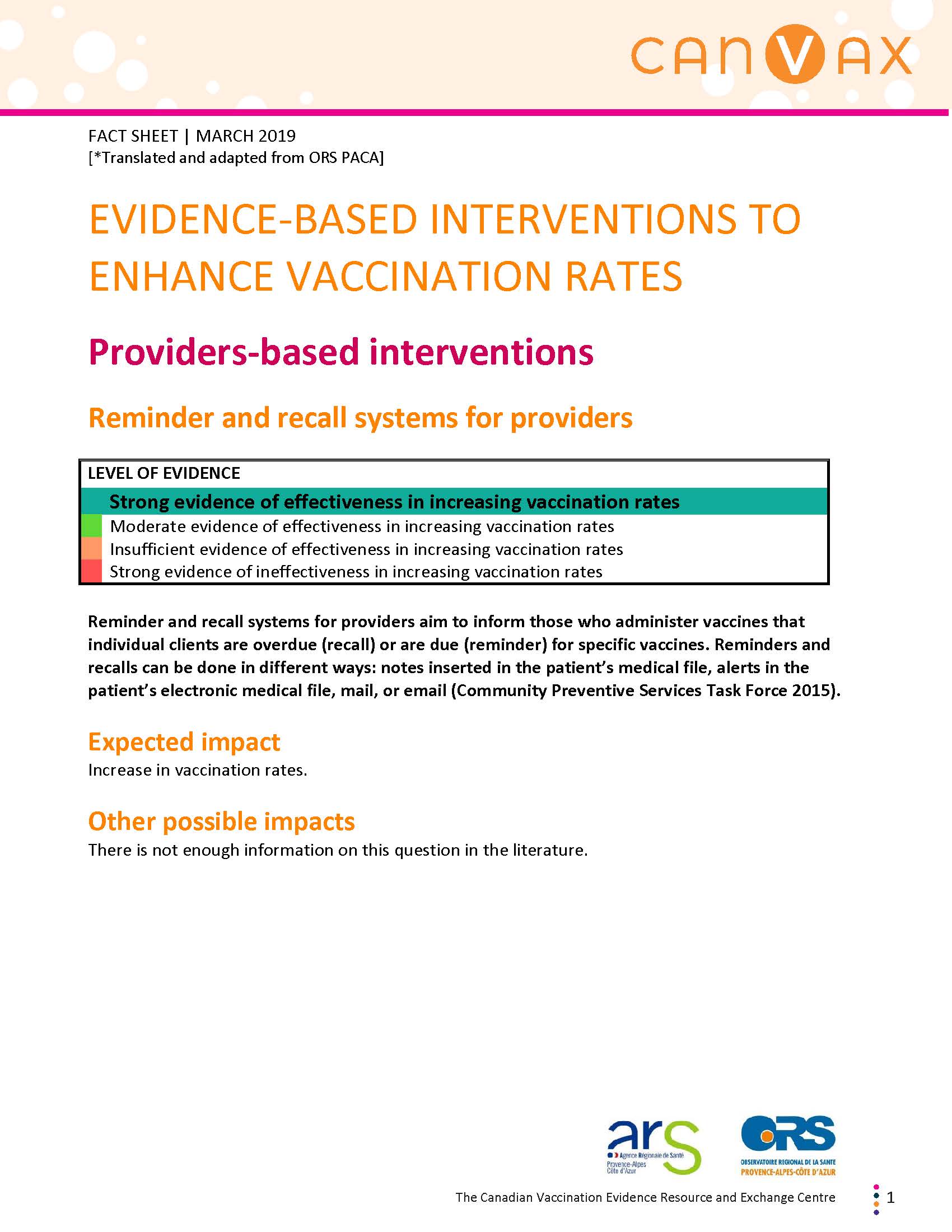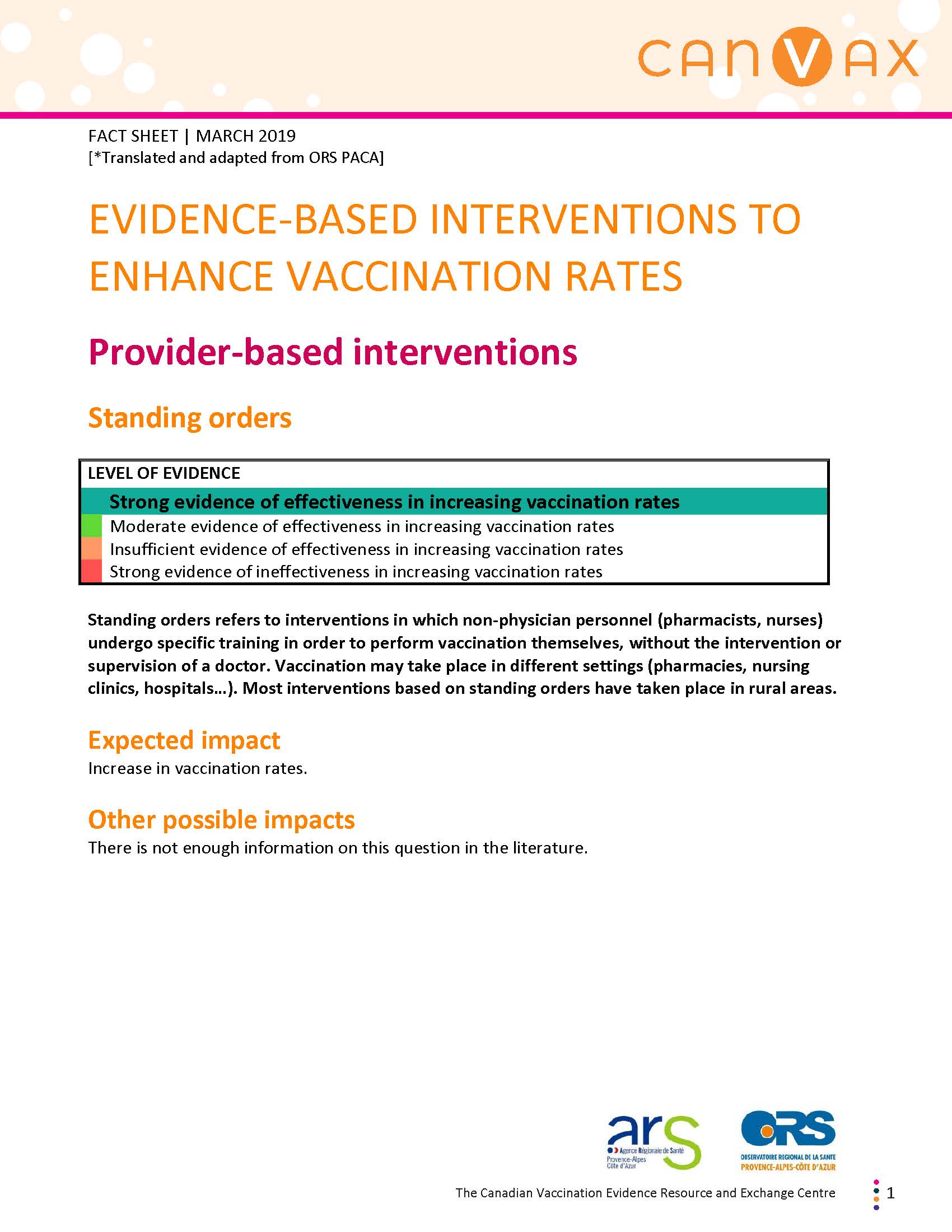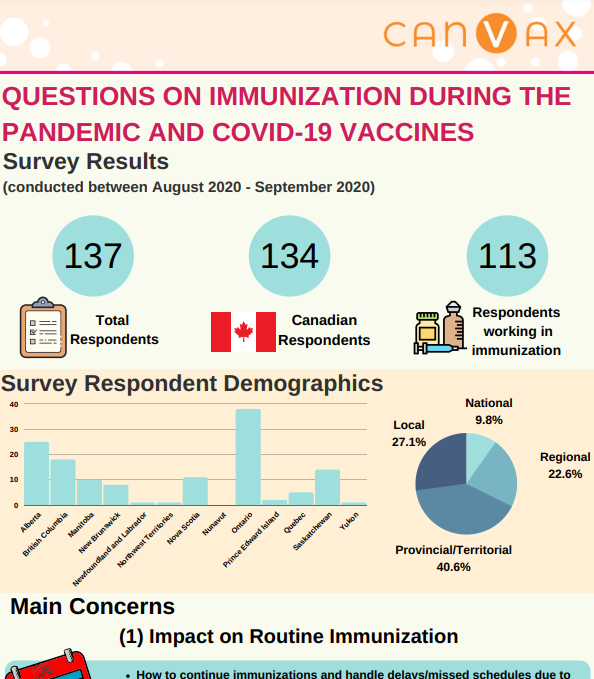Fact Sheets
Choose Your Size of Information: Bite, Snack, or Lunch (Infographic)
This infographic is adapted from the CANVax in Brief, “Bites”, “Snacks”, & “Lunch” Communications for COVID-19 and COVID-19 Vaccines.
Audit and Feedback
Audit and feedback interventions consist of evaluating the performance of health professionals regarding the vaccination of their patients, and giving them feedback on their performance. The feedback may be on the performance of a group of health professionals, or that of one professional in particular. This type of intervention may be implemented alone or in combination with other types of interventions (financial incentives, benchmarking…)
Client-based Written Education Interventions When Used Alone
This fact sheet is solely devoted to client-based written information or education strategies based on the distribution of pamphlets, fact sheets, posters, etc.
Client Incentives and Rewards
Incentives encourage people to receive the recommended vaccines, either for themselves or their loved ones, and may include rewards for accepting to vaccinate and/or penalties for refusing to. Rewards may be financial or non-financial (discount coupons for retailers, baby products, lottery tickets…). Penalties may take the form of fines or a decrease in welfare support.
Home Visits
In the field of vaccination, “home visit” interventions involve providing face-to-face services to clients in their homes. Services can include information and education on vaccination in general or on specific vaccines, assessment of vaccine status, referral or in some cases, provision of vaccinations
Mass Media Campaigns
This fact sheet is solely devoted to media campaigns. This type of intervention consists of using different types of media (television, written press, radio…) to promote vaccination on a large scale. These campaigns may target the general public or specific subsets of the population, and may be conducted at the local, regional or national level
Multicomponent Interventions with At Least One Education/Information Component
"This fact sheet is solely devoted to multicomponent interventions with at least one education/information component. This type of intervention is comprised of at least two strategies aiming to increase vaccination rates, of which at least one is an education or information strategy (distribution of documentation, interactions with a professional or with peers, mass media campaigns).
Person-to-Person Interaction
This fact sheet is solely devoted to person-to-person interaction on vaccination. Central to this type of intervention is the exchange of ideas and/or opinions between two or more people on the issue of vaccination.
Reminder and Recall Systems for Clients
Reminder and recall systems for clients are used to remind a target group to get vaccinated when vaccines are due (reminder) or overdue (recall). Reminder and recall systems may include messages with different content and may use different modes of communication (telephone, mail, SMS…)
Reminder and Recall Systems for Providers
Reminder and recall systems for providers aim to inform those who administer vaccines that individual clients are overdue (recall) or are due (reminder) for specific vaccines. Reminders and recalls can be done in different ways: notes inserted in the patient’s medical file, alerts in the patient’s electronic medical file, mail, or email.
Standing Orders
Standing orders refers to interventions in which non-physician personnel (pharmacists, nurses) undergo specific training in order to perform vaccination themselves, without the intervention or supervision of a doctor. Vaccination may take place in different settings (pharmacies, nursing clinics, hospitals…). Most interventions based on standing orders have taken place in rural areas.
Questions on Immunization During the Pandemic and COVID-19 Vaccines (Infographic)
This infographic presents results from a survey we conducted between August 11, 2020 - September 11, 2020, capturing the main concerns expressed by health care professionals on immunization during the pandemic and COVID-19 vaccines.

